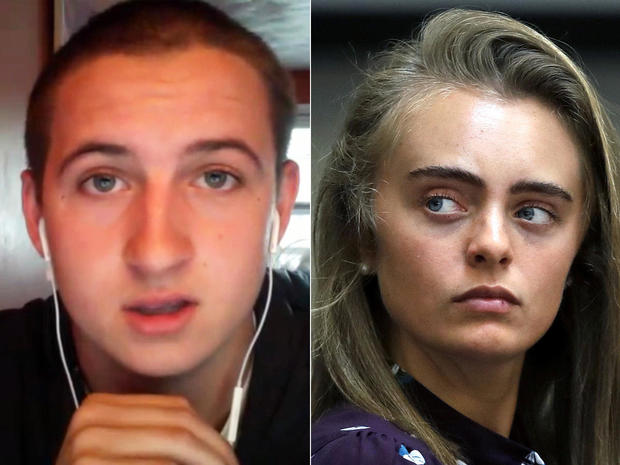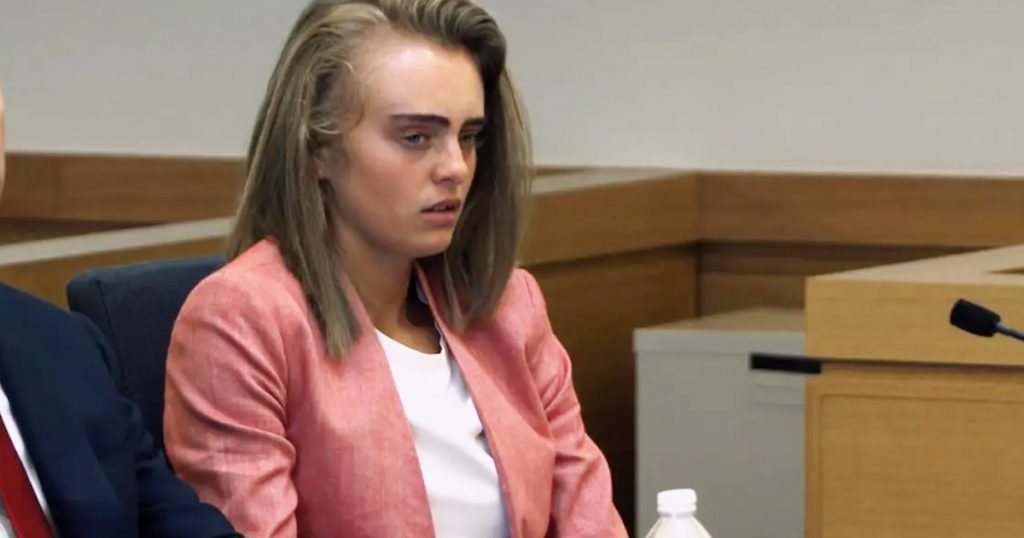By Evi Tsakali,
Trigger warning: this article deals with the sensitive issue of suicide.
13th of July 2014, in the morning: Fairhaven, Massachusetts
The local police station receives a call and shortly after, 18-year old Conrad is declared missing.
His black van is located in the empty parking lot of a big shopping mall and the young man is found completely still in it, along with a water pump that works with gasoline behind him (it produced carbon monoxide which must have killed him within 20 minutes).
Conrad had committed suicide, and the discovery of his body was only the beginning. His diary, which he left behind, would reveal that the story was much more complex and dark.
The police found this last thread of messages between Conrad and someone called Michelle Carter on his phone, and that moment they knew that the Prosecutor needed to be notified:
Michelle: “Are you doing it now?”
Conrad: “I don’t know how to leave them.”
Michelle: “Just tell them you need to go buy something.”
[…]
Michelle: “Don’t think about it too much.”
Conrad: “I know that I’m overthinking, I’ve been doing it for a long time.”
Michelle: “I know, but you have to do as you said.”
After his parents’ divorce in 2011, Conrad’s spiral towards depression deteriorated, and he was hospitalized in psychiatric wards multiple times. He was a very bright student; so bright, that he had been awarded a full scholarship by the University of Massachusetts. He did not know what he wanted to do with his life though; in his private diary (which he kept in written and video format), he explained how he felt he was a worthless human being and how he had tried to kill himself many times.

Michelle, on the other hand, was a very bubbly and sociable teenage girl (one year younger than Conrad). Under the cheerful veil though, there was a girl that was always seeking attention. She was constantly feeling alone and had the impression that no one loved her. Michelle was struggling with an eating disorder and depression from a very young age. She usually cut herself and was on anti-depressants. Until she met Conrad on a holiday. That boy seemed to fill the gap she felt.
They formed an online relationship, for which Conrad’s mother did not know a thing. Despite the not-so-big distance (one hour) that separated them, during their two-year relationship they would see each other a maximum of five times. They did not even have photos together. However, they were talking all the time, making very deep discussions, which made this relationship, albeit atypical, very intense.
Conrad was very honest with Michelle from the beginning. He described to her his failed efforts to kill himself. He later confessed that he wanted to try again. One day he sent her the photo of a gun and rope, saying that he would love to do it with her “like Romeo and Juliet”, to which she responded “I would love to be your Juliet”, but when he reminded her how the story ends, she said, “no, we are not going to die”. During these two years, Michelle tried to convince Conrad to quit thinking of committing suicide, while he explicitly told her that the only way he would hate her was if she ever told anyone what he told her. He affirmed that he was never going to be alright and did not want anyone to stop him.
On July 12th 2014, Conrad told his mother that he would go to visit a friend and that he would not return early. It was the last time that his family would see him alive. He had left notes both to his parents and to Michelle, who -after his suicide- approached his family and suddenly started bonding with them, even though Conrad’s parents barely knew about her existence before. She was present at his funeral and demanded to take a part of his ashes, as well as some of his belongings. Conrad’s mother was already suspicious.

And she was right to be. Sometime before Conrad’s suicide, Michelle urgently texted a friend saying that Conrad was not responding to her messages and it was probable that he hurt himself. When she went on about how it was her fault that he may have committed suicide and that she did not help him enough, her friend comforted her by reassuring her that none of this is her fault and that Conrad had so many problems. Michelle then asked her if she could hang out with her so that she can forget. She liked the attention that she got from what was proved to be the “test drive” of Conrad’s suicide. She loved the role of the girl that lost her boyfriend that had to be taken care of and given attention… so much that she had to gain it in real life. After Conrad’s suicide, she posted incessantly on social media about how much she would miss him and how he would be her angel forever. She organized a baseball match whose earnings would go to charity in his memory at her hometown (and not his). She reportedly texted a friend of hers “ Hey look, I posted about the event on Facebook, I am famous now”. She even threatened one of Conrad’s friends who wondered why the event was hosted at her hometown not to take credit for her idea.
When the police searched her phone after having gotten the respective warrant from the prosecutor, at first they saw the supportive and loving messages mentioned above, that were meant to deter Conrad from committing suicide and give him reason to live. However, since July 2nd, her tone changed radically; during those ten days until his death, she asked him 40 times when he was going to commit suicide. She repeatedly accused him of saying things that he would not do, making false promises to her that he would kill himself, and that he was always postponing it. Every time Conrad had regrets or felt guilt for planning to leave his family behind, Michelle would refute him and propose methods to commit suicide instead. From that moment on, Michelle had an active role in assisting Conrad to commit suicide. It was she that suggested the carbon monoxide.
It took two months for Michelle to confess, via a message to a friend, that she could have stopped Conrad from killing himself, but she chose not to. When the carbon monoxide kicked in, Conrad had gotten out of the van, because he was afraid, but she told him to finish what he started.
The fundamental question that this story instigates is: can words kill? Apparently, yes. But is it illegal or just immoral? Six months after Michelle’s confession, the court opted for the first, convicting Michelle for involuntary manslaughter. The Conrad Roy and Michelle Carter case provoked reflection on the issue of whether inciting suicide is a crime and eventually introduced a type of crime that became widely known as the “death by the text”. Because as it seems, words can be bullets.
References
- Michelle Carter, convicted in a texting suicide case, was released from prison, CNN. Available here.
- True crime αλά Ελληνικά. Available here.




